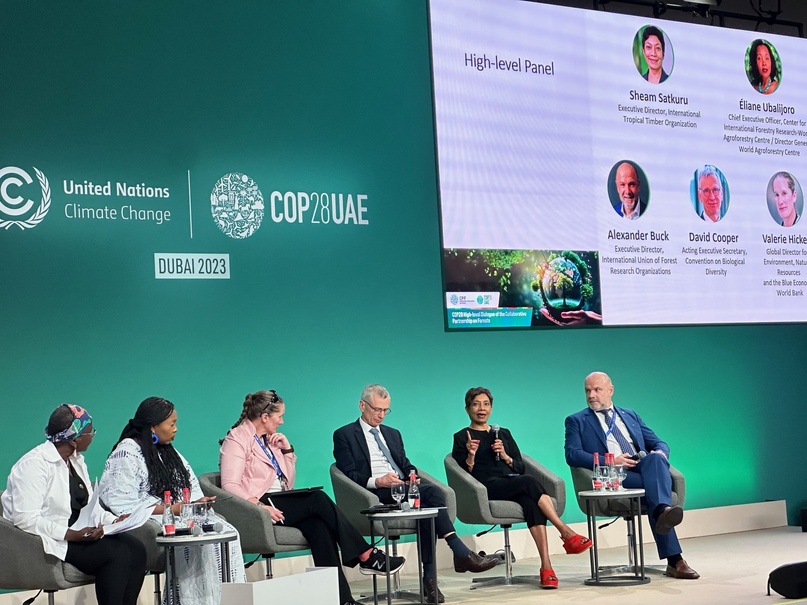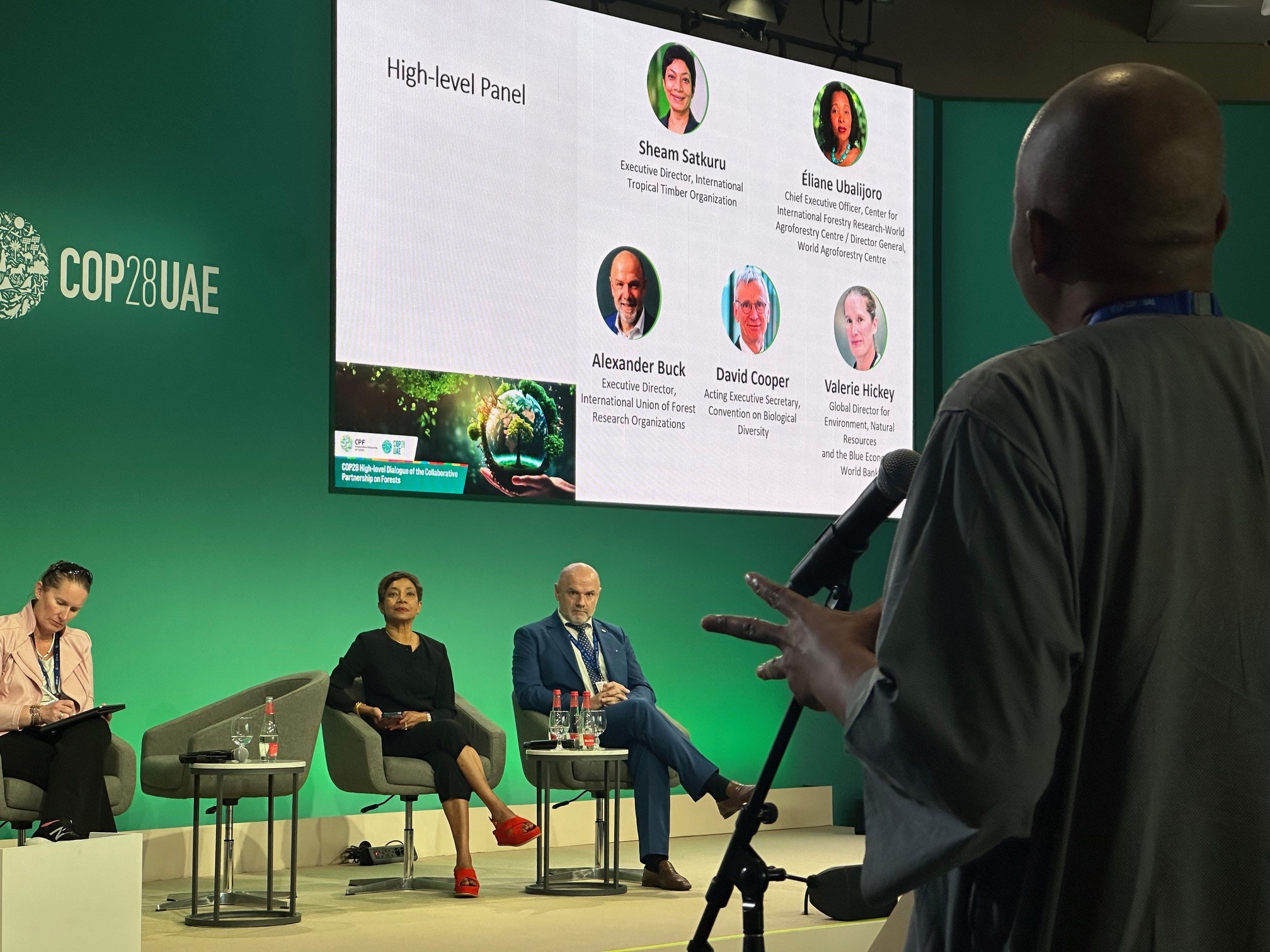Sustainable forest use is a necessary tool for halting deforestation—ITTO Executive Director
11 December 2023

ITTO Executive Director Sheam Satkuru (second from the right) speaks at the CPF High-level Dialogue held at COP28 in Dubai. Photo: S. Kawaguchi/ITTO
Dubai, UAE, 11 December 2023: Sustainable forest management, sustainable and legal tropical timber supply chains and incentives for these are among the mechanisms needed to halt and reverse deforestation by 2030, according to ITTO Executive Director Sheam Satkuru, speaking yesterday at an event held during the 28th Conference of the Parties to the UN Framework Convention on Climate Change.
The High-level Dialogue of the Collaborative Partnership on Forests (CPF) was convened to enable the leaders of UN agencies and other CPF members to share perspectives and actions on accelerating efforts to halt and reverse deforestation by 2030. The CPF comprises 16 international organizations with major programmes on forests.
“The world needs to recognize that sustainable timber harvesting is not deforestation,” said Ms Satkuru. “Timber is one of the most environmentally friendly materials, and we know how to harvest forests sustainably.”
Ms Satkuru said sustainable timber harvesting provides forest owners with a financial incentive to maintain their forests. But it requires robust, verifiable information on the legality and sustainability of the wood products in the marketplace.
“Such information is important because it enables consumers to support the efforts of timber suppliers who are managing their forests legally and sustainably,” she said. “Sustainable forestry costs money, and consumers need to be informed that rewarding legal and sustainable timber is essential for retaining forests, along with their rich biodiversity and all the other forest values.”
Ms Satkuru said sustainable forestry and legal and sustainable timber supply chains must be complemented by cutting subsidies for competing land uses.
“If we disincentivize forestry by incentivizing competing land-use sectors we will be at the losing end,” she said.
Ms Satkuru spoke about other measures to increase investment in the sustainable management of tropical forests, including carbon financing, payments for ecosystem services, and the development of sustainable business models for non-wood forest products, many of which have valuable local and even global markets.
Ms Satkuru outlined ITTO’s priority work areas, as set out in the Organization’s strategic plan. These are governance and investment, economies and tropical timber trade, resilience, restoration and conservation, and statistics and information. She also spoke about the work ITTO is doing to improve public perceptions of wood and sustainable forest use, including through Sustainable Wood for a Sustainable World, a CPF initiative. ITTO has a programme line dedicated to legal and sustainable tropical timber supply chains, she said, and is working on various fronts to increase transparency in the tropical timber trade. The Organization is also promoting forest landscape restoration and forest education, among many other facets of its work.
The event featured speakers from other CPF members, including Juliette Biao, Director, UN Forum on Forests Secretariat; Alexander Buck, Executive Director, International Union of Forest Research Organizations; David Cooper, Acting Executive Secretary, Convention on Biological Diversity; Valerie Hickey, Global Director for Environment, Natural Resources and the Blue Economy, World Bank; Simon Stiell, Executive Secretary, UN Climate Change; Éliane Ubalijoro, Chief Executive Officer, Center for International Forestry Research-World Agroforestry Centre; and Zhimin Wu, Director, FAO Forestry Division.
Also on Sunday, ITTO’s Hwan Ok Ma spoke at the event, “Sustainable Management of Natural Tropical Forests”, which was held in the Indonesian pavilion, highlighting best practices in forest governance derived from ITTO field and policy work.
